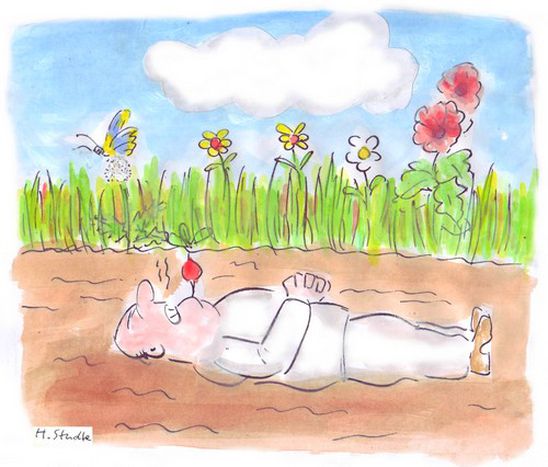
Back to our roots
Published on
Translation by:
 sarah meleleu
sarah meleleu
All are equal before God. The secular powers have so much difficulty trying to ensure equality and justice on the earth, yet the whole thing is so easily resolved at death. For our final rest we long-established Europeans ponder nature; going back to our roots.
The French favour the maiden meadows in spring. When they depart this life, they munch on dandelions, and coincidently from the roots: manger les pissenlits par la racine. When someone dies in Germany, they also familiarise themselves with the lush green of the meadows. The German, however, acting out of character, expresses this less specifically than his neighbour on the other side of the Rhine and simply beißt ins Gras or bites the grass. Optionally, in German speaking countries you can be watched from below by the radishes: die Radieschen von unten betrachtet werden. The Spanish are less destructive, and are in fact completely the opposite: they go to grow daisies or ir a crier malvas rather than eating them.
The final resting place in Poland is coined from passivity. One delights very easily in nature, so the person who has passed on can wcha kwiatki od spodu or smell the flowers from below. In Slavic countries you can also become something profane. A few metres under the earth one finds less flora and fauna for a nice post mortem, so the dead proverbially bite the earth: gry gleb. The English do it in the same way as the Polish and bite the dust. So, once passed over to the other side, the whole of Europe can be found communing with nature.
Translated from Zurück zu den Wurzeln


